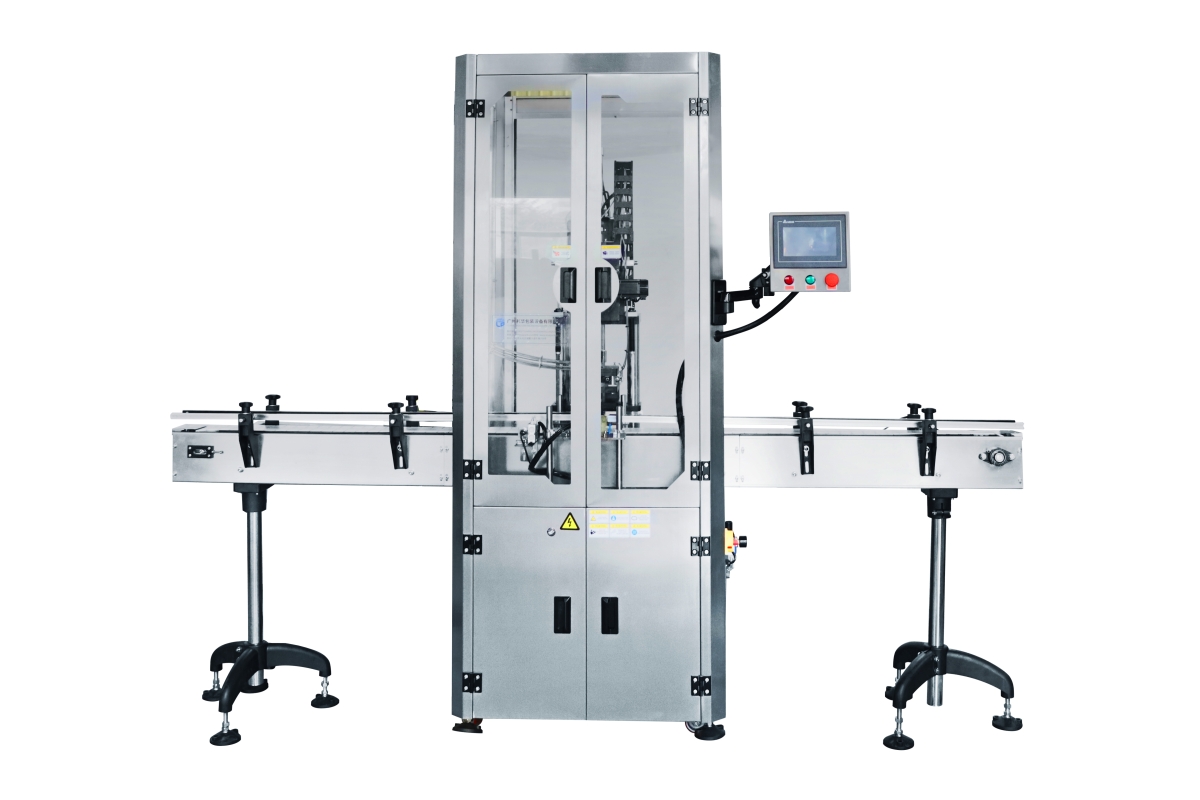- 12
- Mar
(akukho sihloko)
IiNzuzo zokuSebenzisa i-Automatic One Head Servo Control Screw Capping Machine
Indlela yokukhetha umatshini wokuLawula i-Screw eLungileyo kwiNtloko enye ye-Servo kwiShishini lakho
Ekuqukunjelweni, ukukhetha umatshini ochanekileyo ochanekileyo we-servo olawulayo we-screw capping yeshishini lakho ufuna ukuqwalaselwa ngokucokisekileyo iimfuno zakho zokuvelisa, iintlobo ze-cap, inqanaba lokuzenzekelayo, ukukhululeka kokusebenza kunye nokugcinwa, iindleko, kunye nodumo lomenzi. Ngokuzivavanya ngokucokisekileyo ezi zinto, unokwenza isigqibo esinolwazi esiya kukwandisa ukusebenza kakuhle kwemveliso yakho kwaye ube negalelo kwimpumelelo yeshishini lakho.
Choosing the right automatic single head servo control screw capping machine for your business is a crucial decision that can greatly impact your production efficiency and overall success. With so many options available in the market, it can be overwhelming to determine which machine is the best fit for your specific needs. In this article, we will guide you through the key factors to consider when selecting a capping machine, ensuring that you make an informed decision that aligns with your business goals.
First and foremost, it is essential to assess your production requirements. Consider the volume of bottles or containers that need to be capped per hour or per day. This will help you determine the speed and capacity of the machine you require. Additionally, take into account the size and shape of the containers, as different capping machines are designed to handle specific bottle types. Understanding your production needs will enable you to narrow down your options and focus on machines that can meet your requirements.
Another crucial factor to consider is the type of caps you will be using. Different capping machines are designed to handle specific cap types, such as screw caps, snap caps, or press-on caps. Ensure that the machine you choose is compatible with the caps you will be using in your production process. Additionally, consider the size range of caps that the machine can accommodate, as this may vary depending on the model.
The level of automation and control offered by the capping machine is another important consideration. Automatic single head servo control screw capping machines are equipped with advanced technology that allows for precise and efficient capping. These machines utilize servo motors to control the capping process, ensuring consistent torque and preventing over or under tightening of caps. This level of control is particularly beneficial for industries that require high precision, such as pharmaceutical or cosmetic companies.
Furthermore, consider the ease of operation and maintenance of the capping machine. Look for machines that offer user-friendly interfaces and intuitive controls, allowing your operators to quickly learn and operate the machine efficiently. Additionally, inquire about the maintenance requirements and availability of spare parts for the machine. Opting for a machine with readily available spare parts and a reliable support system can minimize downtime and ensure smooth operations.
Cost is, of course, a significant factor in any purchasing decision. When evaluating the cost of a capping machine, consider not only the initial investment but also the long-term costs associated with maintenance, spare parts, and energy consumption. While it may be tempting to opt for a cheaper machine, it is crucial to assess the overall value and return on investment that the machine can provide.
Lastly, consider the reputation and reliability of the manufacturer or supplier. Look for companies with a proven track record in the industry and positive customer reviews. A reputable manufacturer will not only provide a high-quality machine but also offer excellent customer support and after-sales service.

In conclusion, choosing the right automatic single head servo control screw capping machine for your business requires careful consideration of your production requirements, cap types, level of automation, ease of operation and maintenance, cost, and the reputation of the manufacturer. By thoroughly evaluating these factors, you can make an informed decision that will optimize your production efficiency and contribute to the success of your business.
